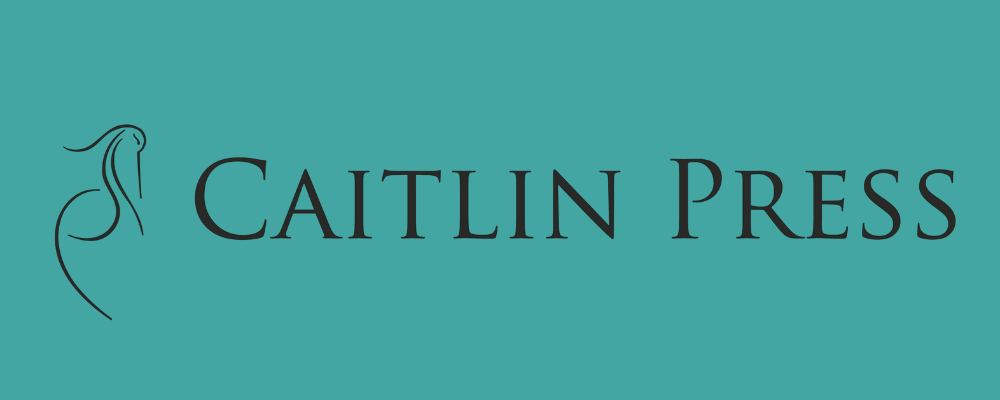In this episode, BookNet Marketing & Communications Manager, Ainsley Sparkes, shares with listeners insights about the status of the publishing industry in Canada. What impact has COVID-19 had on readers' habits? Have book buying behaviours changed? What subjects are selling the most? All these answers and more in this edition of the BookNet Canada podcast.
(Scroll down for a transcript of the conversation.)
Want to make sure you never miss an episode of the podcast? You can subscribe for free on iTunes, Stitcher, Pocket Casts, TuneIn, or SoundCloud.
Further reading/listening
2020 Canadian book market half-year review
The impact of COVID-19 on reading
Infographic: The State of Publishing in Canada 2019
The State of Publishing in Canada 2019 study
Transcript:
Ainsley Sparkes: Welcome to this month’s episode of The BookNet Canada Podcast. I’m your host, Ainsley Sparkes, the marketing & communications manager at BookNet.
We’re now over halfway through 2020 and as we gear up for the fall awards and the holiday book buying season, we thought some insights into the state of the market and the state of publishing in Canada in general might be helpful context.
First let's take a look at our newest, free report, The State of Publishing in Canada 2019 which we released earlier this month. This study conducted by the BookNet Canada research team received responses from 51 publishing companies of all sizes across Canada. We asked them questions about the health of their companies, their accessibility initiatives, industry challenges, and more. In this year’s edition of the report, we also included data about the biggest challenge the publishing industry has faced in the last few years, COVID-19. We also pulled in data from BNC’s Canadian Book Consumer survey to get a full picture of the entire landscape.
According to our Canadian Book Consumer survey, print books remain the most popular format among readers. In 2019, 81% of buyers chose to buy a print book, 20% bought an ebook, and 8% bought an audiobook. While 8% of readers buying an audiobook might not seem like a big number, it's up 41% from 2018.
On the publisher side of things, in 2019 20% of publishers reported an increase of 11-20% in their digital sales over the year before.
Other questions we asked publishers touched on the challenges the industry has been facing, the initiatives they want to implement, and the barriers that prevented them from implementing those initiatives. In terms of initiatives to implement:
63% of publishers said they wanted to hire and promote more diverse staff;
58% wanted to use metadata consistently; and
42% wanted to standardize their processes and workflows.
Almost 60% of publishers said the main obstacles to implementing these initiatives were financial resources, followed by time at 20%, resistance to change among colleagues (11%), and lack of relevant skills (9%).
Let’s get even more recent and look at how the first six months of 2020 shook out.
Print sales for the first six months of 2020 vs. the first six months of 2019 show a decrease of at least three million units and 63 million dollars year-over-year. Sudden closures and restrictions due to COVID-19 had, and are still having, a significant impact on the industry – not only in sales but also in purchasing behaviour.
Unsurprisingly, due to retail closures across Canada during the spring and early summer, sales were down a total of 24% with some weeks being down as much as 44% year-over-year from 2019. In a bit of good news, as stores began to open, sales began to bounce back significantly. In fact, weekly sales in June, July, and August were generally trending above the corresponding weeks from 2019.
But what of the category trends for the first half of 2020? Juvenile and Young Adult continue to dominate, accounting for 41% of all print book sales in the Canadian English-language trade market, Non-Fiction follows with 32%, Fiction brings up the rear at 26%, these are all within a couple percentages from their respective market shares in 2019.
We were curious about what impact the pandemic retail closures had on book release dates in Canada. So we analyzed publication dates by month for 2020 print book releases in Canada, and found a significant decrease in the number of new print books entering the market from April to July, followed by a significant increase in titles set to publish in September. It’s important to remember that, routinely, September and October are the biggest months for new releases as the industry readies for the book buying holiday and award seasons. What is of interest this year is the absence of the usual bump of books published in May and June. It appears many summer releases were delayed.
With readers practising physical distancing, the collected data shows a significant growth in digital book consumption and purchasing through the first half of the year. As bookstores were closing, readers sought alternative formats beyond print books. When we ran a quick COVID survey back at the end of March, beginning of April, we found that a quarter of all book purchases were ebooks. This was up from 18% in the same time frame in 2019 and represents a 33% increase year-over-year. In the second quarter of 2020, ebook sales declined slightly to 20% of purchases.
Audiobook purchases did not show much change and held at approximately 5% of units purchased. Print formats, paperbacks, and hardcovers saw slight declines in the first quarter that were mostly reversed in second quarter results.
It won’t come as much of a surprise that book shopping moved primarily online in March and April this year. In fact, about seven in 10 of all book purchases by respondents were done online during this period. This was significantly higher than for the same period the year before when only half of all book purchases were made online. Online purchases fell slightly in the second quarter (from 66% to 63%), but still remained well above the corresponding period from the year before. Conversely, there were significant declines in physical retail sales during the first half of 2020.
What about readers? How are they changing or not during 2020 so far?
First off, let’s define a reader: A reader is an adult who said that they had read or listened to at least one print book, ebook, audiobook (physical or digital), or comic book/graphic novel in the last year.
With that definition in mind, we found that the percentage of readers had increased from 68% in 2019 to 72% in the first half of 2020.
Of Canadian readers in the first half of 2020:
60% said they read a print book in the last twelve months,
25% read an ebook,
12% read a comic/manga book or graphic novel,
8% listened to a digital audiobook, and
6% said they listened to a physical audiobook in the last twelve months.
What are those books about? In the first half of 2020, most readers say that they always or sometimes read books with diverse topics or experiences (86%), 80% always or sometimes read books with Canadian characters, 69% always or sometimes read books with topics or experiences that represent their identity or community, and 66% of readers always or sometimes read books with BIPOC characters (Black, Indigenous, or people of colour).
And here are three more interesting tidbits we discovered about the readers we surveyed:
94% were passionate about books and reading
97% preferred to read books by authors they read before or know they’ll like
92% liked to read the latest books before most other people have read them
I hope this information helps to orient you a little bit in a disorienting time. See the links in the show notes to the study and blog posts cited in this podcast if you want to read more about each topic.
We wish you all the best for the fall/winter bookselling season. As always, please don’t hesitate to get in touch with us if you have any questions about the Canadian book market. We’ll do our best to answer.
Before we go, I’d like to take a moment to acknowledge that BookNet Canada staff, board, partners, and our makeshift podcast studio, operate upon the traditional territories of the Mississaugas of the Credit First Nation, the Anishinaabe, the Haudenosaunee, Wendat, and Huron indigenous peoples, the original nations of this land. We endorse the calls to action from the Truth and Reconciliation Commission of Canada and support an ongoing shift from gatekeeping to space-making in the book industry. And we hope that our work, including this podcast, helps to create an environment that supports that shift. We'd also like to acknowledge the Government of Canada for their financial support through the Canada Book Fund. And of course, thanks to you for listening.














Sales and library circulation data of Body, Mind & Spirit titles during the the first quarter of 2025.